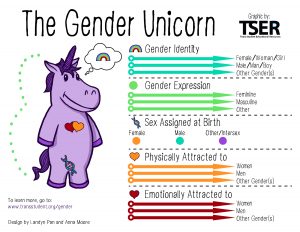 Last week I posted about Charlotte, NC teachers being encouraged to use the Gender Unicorn to explain to students how the sex you are “assigned at birth” may be different from your gender. And how every night, as we watched the Olympic Games, we all experienced a reality check: the obvious biological differences between male and female athletes.
Last week I posted about Charlotte, NC teachers being encouraged to use the Gender Unicorn to explain to students how the sex you are “assigned at birth” may be different from your gender. And how every night, as we watched the Olympic Games, we all experienced a reality check: the obvious biological differences between male and female athletes.
This week a new scientific study, “Sex and Gender: Findings from the Biological, Psychological and Social Sciences,” published in The New Atlantis journal, offers findings that challenge LBGTQ orthodoxy:
You are not born gay. Nor is your sexual orientation unchangeable over a lifetime.
Most young people (70-80%) who have feelings and sensibilities that do not align with their biological sex will eventually grow out of them.
LGBTs have a higher risk of poor physical and mental health than heterosexuals, including:
Non-heterosexuals are at double the risk of depression.
Trans people are ten times more likely to commit suicide.
Stigma and prejudice do not completely account for these differences.
These conclusions, published two weeks ago by two well-credentialed Johns Hopkins scientists, are not receiving nearly the attention of the mainstream media that they deserve. Meanwhile, the Gender Unicorn, produced by LBGTQ student activists, is gaining credibility in our schools.
Why does this study matter so much for all of us?



















